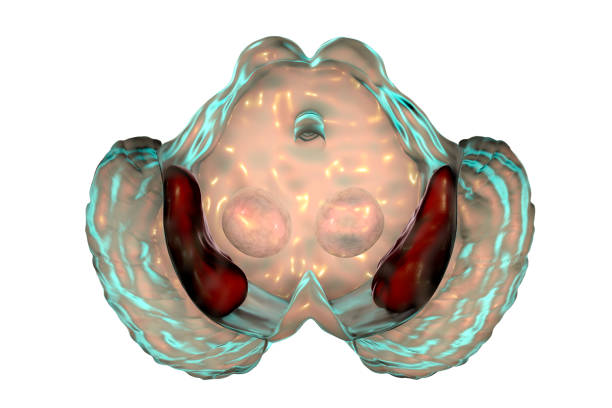Creutzfeldt-Jakob Disease (CJD)
Creutzfeldt-Jakob disease (CJD) is a progressive brain disease that destroys brain cells. Despite advances in medical science, there is no proven treatment for this disease. Due to its rareness and rapid progression, clinical trials of potential treatments are difficult to conduct. Current therapies focus on managing symptoms and supporting individuals living with the disease. People who have the disease often become totally dependent on others.
How do u get Creutzfeldt-Jakob disease?
Creutzfeldt-Jakob (CJD) is a serious disease affecting the brain. Symptoms include a progressive loss of mental function and dementia. It is often accompanied by involuntary jerking of muscles. Patients may also experience problems with vision and coordination. In severe cases, patients may go into a coma. The condition is caused by an abnormal protein in the brain called a pron.
Creutzfeldt-Jakob is a fatal disease caused by a faulty protein. Most of the body’s cells produce prion proteins, but abnormal ones can cause disease. Once these abnormal proteins accumulate in the brain, they damage and destroy brain cells. It is a fatal disease, and there is no known cure.
Can you survive Creutzfeldt-Jakob disease?
There are no effective treatments for Creutzfeldt-Jakob Disease (CJD). Despite the fact that it is a fatal disease, a number of drugs and pills are available to manage its symptoms and make the patient as comfortable as possible. Most doctors will initially treat a patient with the disease at the family doctor’s office and then refer them to a neurologist. The first step in treating CJD is to make a list of your symptoms and let your doctor know what you’re feeling.
The physical symptoms of CJD typically worsen over time. Patients eventually lose the ability to move or communicate and require full-time care. Most patients who get the disease die within 12 months of first symptoms, though some live for years.
Is CJD a painful death?
Creutzfeldt-Jakob (CJD) is a fatal neurodegenerative disease that has no known cure. The disease often develops and progresses rapidly, and there is no known way to prevent it. People who have a family history of neurological disease may find it helpful to consult with a genetics counselor. The counselor can help you sort out the risks associated with your circumstances. Currently, the risk of contracting vCJD is very low in the U.S., and the CDC believes that most cases of the disease occur outside the U.S.
Patients with CJD may experience progressive neuromuscular symptoms such as impaired coordination, muscle weakness, and impaired speech. Eventually, they may become bedridden or slip into a coma. Death usually occurs three to twelve months after the symptoms first appear. In fact, about 70% of patients with classical CJD die within six months. In addition, autopsy findings typically show the presence of holes in the brain. These holes are also characteristic of scrapie and BSE.
Does CJD run in families?
Creutzfeldt-Jakob disease (CJD) is a rare neurological condition characterized by abnormal forms of the prion protein. These proteins are normally harmless, but when they misfold, they are infectious and cause damage to normal biological processes. Classic CJD typically develops suddenly without an apparent cause. In other cases, genetic mutations in the CJD gene may result in the disease.
The faulty proteins that form in the brain can damage brain cells and lead to degenerative brain diseases. This is the main difference between CJD and other prion diseases. In prion diseases, abnormal proteins called prions bind together and convert normal proteins into more prions. And the more prions there are, the faster the conversion rate happens.
creutzfeldt-jakob disease treatment
Creutzfeldt-Jakob Disease (CJD) is a rare, neurodegenerative disease caused by abnormal folding of normal brain proteins. It can be transmitted from contaminated nerve tissue and is hereditary, although most cases are sporadic. The disease is sometimes also transmitted through cannibalism.
The disease causes rapid movement loss of mental function. It is caused by a protein called prion, which causes abnormal protein folding and interferes with the function of other proteins. There are two types of the disease: sporadic and familial. Sporadic CJD develops for no known reason and begins at an average age of 65. Familial CJD is inherited from a parent and is associated with a prion that affects the brain. A third form is acquired and related to mad cow disease.
Creutzfeldt-Jakob Disease can be diagnosed and treated. The diagnosis is made with a brain biopsy, a sample of brain tissue taken from a dead patient. Genetic testing can also confirm a CJD diagnosis. This test helps determine if an individual’s genes are mutated, which increases the risk of developing the disease.



